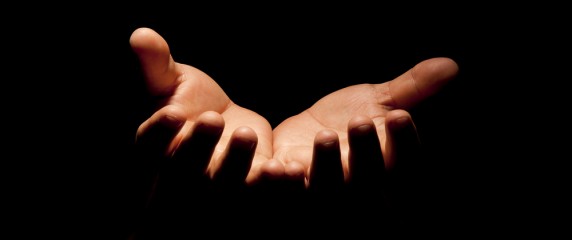By Puteri Balkish
œYour gold is your religion, your adornment is your moral attitude and your wealth is your good manners. Aid Ail Qarni
Those words uttered by the above prominent Islamic scholar, I should think, comprehensively describes the ideal image of a true Muslim.
A huge predicament is still pervasive among Muslims with regards to the quintessence or a true representation of what a person should be as an apostle and practitioner of Islamic beliefs and principles.
The essence of Islam is crystal clear, and comprehensive understanding can be achieved with the smallest, but faith increases, with an impactful gesture like opening up the Holy Quran and studying the Sunnah of Muhammad S.A.W, watching videos of Islamic preachers and scholars on Youtube, and going for religious classes.
However, understanding on religion, among other issues muddled up in the back of our minds, is perceived unalike, varying between each individual due to certain circumstances and their milieu.
A pre-eminent scenario in the Malaysian society is usually the distinct practice of conservative and urban Malay-Muslim families. Conservative ones institutionalise Islamic teachings by sending their children to religious schools at a young age, and reinforcing Islamic values in their daily lives in every aspect like donning the hijab and covering their aurah properly, praying jamaah and reading the Quran daily.
For most urban Malay-Muslim families, aurah is an aspect of Islam that is not enforced by parents onto their children but the focus is usually given to the five pillars of Islam like praying five times a day and fasting in the month of Ramadhan. Parents favour the œthey will discover and learn on their own notion in developing their childrens characters.
More than often, a big number of conservative Malay-Muslim families stress on the image of religion and the theoretical aspects, comparatively than the essence behind the practices. Religion is distinguished as strictly black and white and most of the time unquestionable for a layman as it is considered ˜sinful to be doing so towards the Almightys injunctions.
On the contrary, most urban Malay-Muslim families opt to be moderate in their religious practices, not because they think it is enough but more due to their choice to prioritise the basic principles of Islam. Religion is more abstract and holds a deeper meaning to them as they choose to view it as flexible and elastic as they believe that œGod understands.
In both scenarios, there are pros and cons as regards to the moulding of their faiths. The polarity is very much apparent, as they are immensely related to the childrens upbringing. Consequently, the younger and older generation would have differing views of what makes a good Muslim – good.
When consciousness is muddled up with piety and religiousness, one would be inclined to possess arrogance and a sentiment of superiority, giving them a ˜free ticket to pass judgment and ˜advise others to be up to their standards, using the name of Islam as a way ˜to educate their fellow Muslim brothers and sisters.
The drawback is the sense of entitlement one has when they reckon to be having enough or more knowledge with regards to Islam. Rigid upbringing might affect the persons perception towards the religion, making the person view others in a one- sided manner, disregarding others as to they are on the inside.
Unfortunately, this practice is ubiquitous in Malaysia among the ˜religious Muslim community, since they are the majority, so they impose certain standards as to how a good Muslim should be. Setting a standard is good as a soft reminder to practise Islamic teachings, but we tend to put our haram wands everywhere.
A lecturer of Intercultural Communication, Dr. Tengku Aisha addressed the vitality of separating culture and religion. œMany Malaysian Muslims use religion as a means to discriminate non-Muslims, she added, showing her disagreement as this doing goes against the teachings of Islam.
Familiar arguments would include the debate on touching dogs and consuming haram food. Halal food seems to be a big debate for us Malay Muslims, and then we call out the Chinese for eating pork and associating that with their ˜kiasuness, but how many Muslims are aware of the other big, obviously haram things they indulge in?
œFor you is your religion, and for me is my religion, was mentioned in Surah Al-Kafirun as a salient message for Muslims to exercise tolerance and respect towards others.
A question to ponder on, since religion does make people more moral; do most ˜religious people have morals?
As mere mortals, we often associate religiousness with a persons way of carrying themselves, without considering their core. Religiousness is subjective, faith and imaan is only measured through a persons intentions. Intentions are for mere mortals to keep to themselves and God. The exterior tricks the human mind to make assumptions as to how one carries himself or herself, not what they are.
Similarly, the best way to view a person is through their essence, not the way they look. People are able to create an illusion to what they are on the outside, but no one ever manages to exude their true colours, especially when they are ugly inside.
I am not the best judge to determine what a good Muslim is, but from my understanding of Islam, Prophet Muhammad S.A.W taught us to always presume the best of others, and to me, Muslims should be more considerate to look beyond the apparent. Without morals and common decency, we are just blind followers of the religion.***
